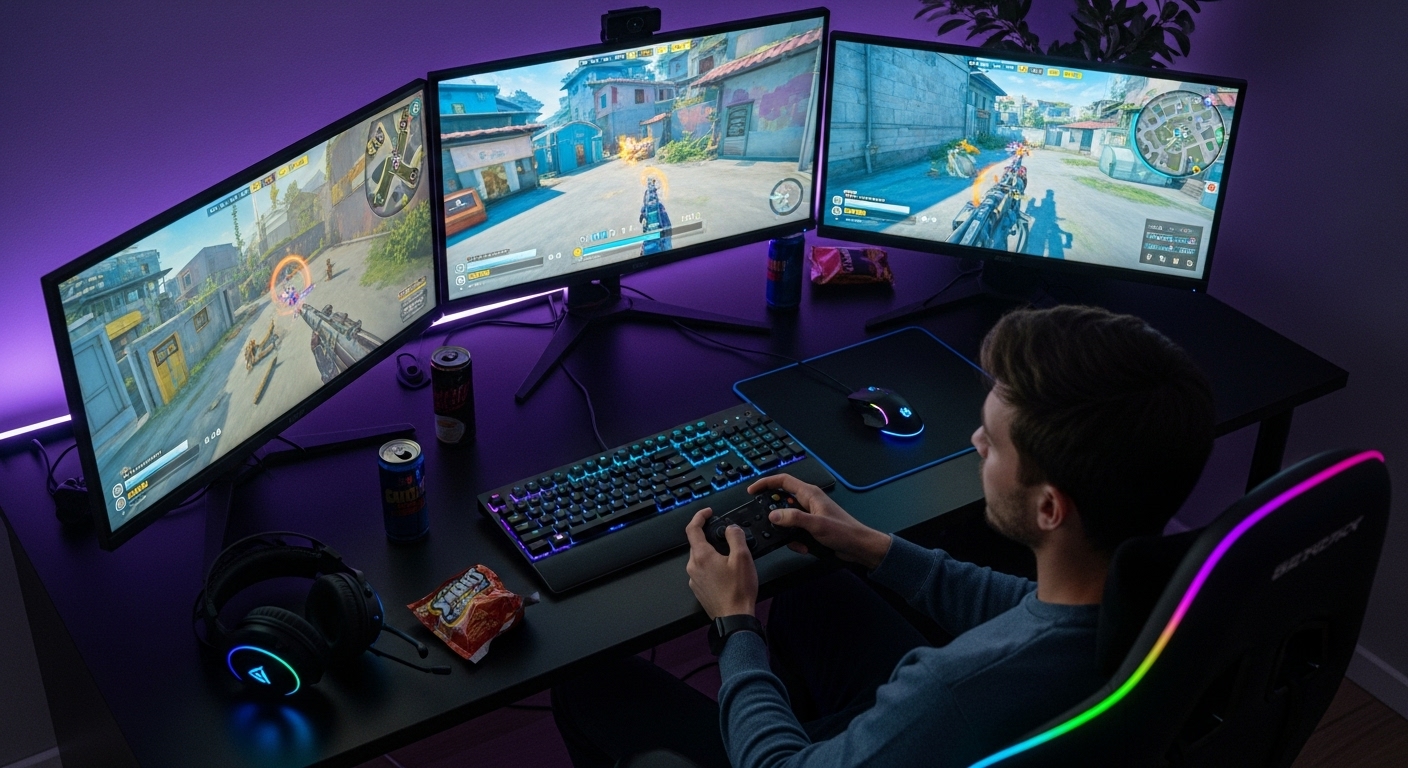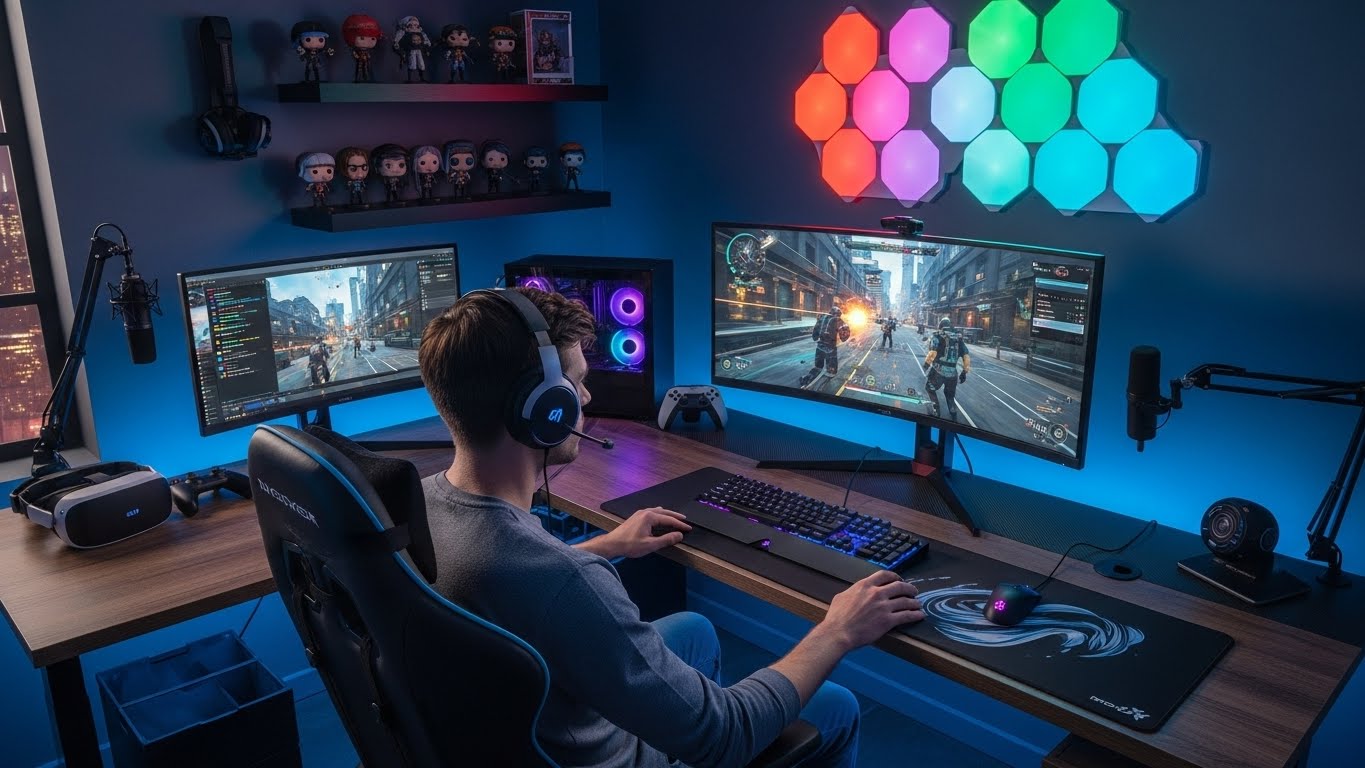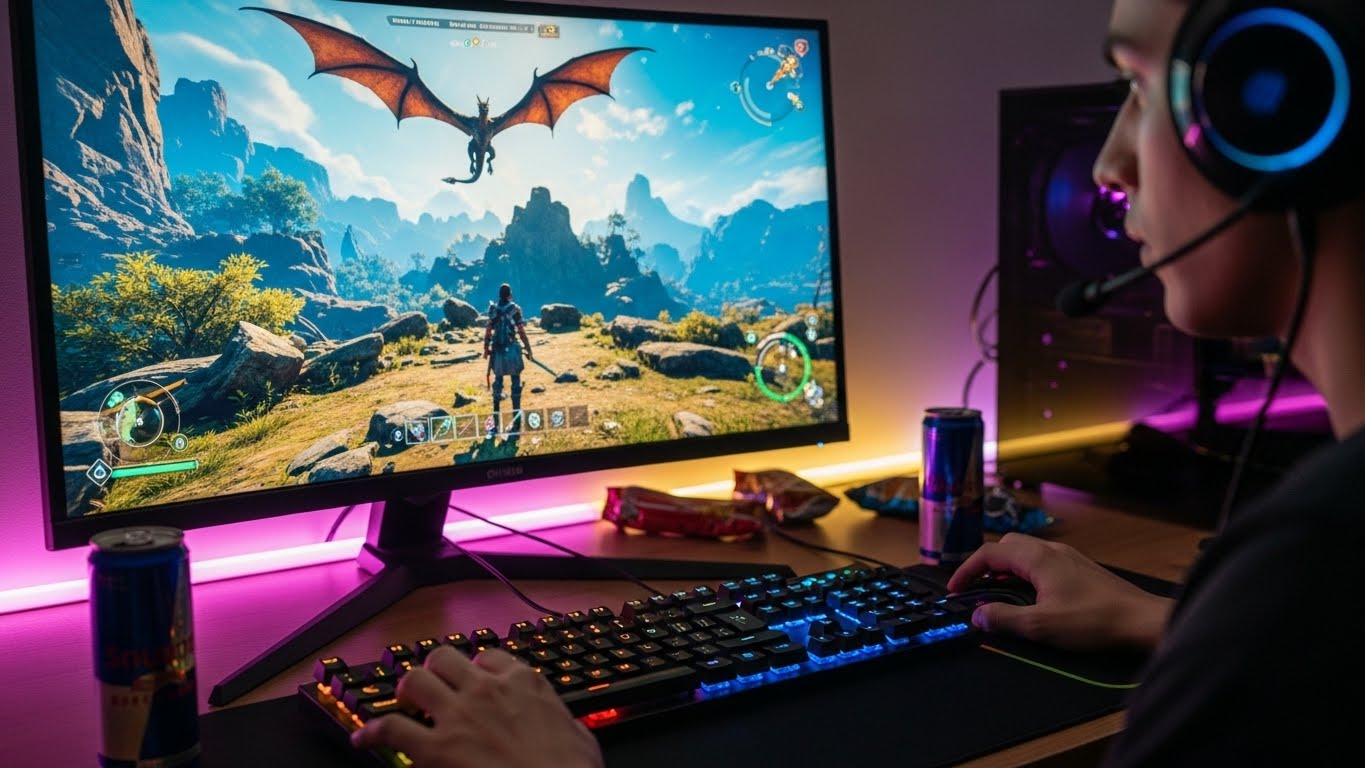gaming have been an integral part of human civilization since time immemorial. From the ancient Olympic Games in Greece to the modern spectacles we witness today, gaming are much more than just physical activity. They represent discipline, dedication, teamwork, and personal growth. Beyond the obvious thrill of competition, gaming impact society, culture, and individual lives in profound ways. In this blog post, we will explore various dimensions of gaming—their history, benefits, influence on society, iconic moments, and the lessons they teach us.
The Historical Roots of gaming
The origins of gaming can be traced back thousands of years. Ancient civilizations practiced forms of physical activity that combined recreation, ritual, and military training. The Greeks formalized many gaming into structured competitions, most famously with the inception of the Olympic Games in 776 BCE. Events such as running, wrestling, and chariot racing were not only athletic tests but also ways to honor the gods and showcase physical prowess.
Similarly, other cultures had their own unique gaming traditions. In ancient China, activities like archery and martial arts were practiced both for self-defense and as competitive exercises. In Mesoamerica, the Mayans played a ceremonial ball game that combined skill, strategy, and religious significance. These early forms of gaming illustrate humanity’s long-standing fascination with physical challenges and competition.
Over centuries, gaming evolved alongside society. The introduction of organized leagues, codified rules, and international competitions transformed informal games into the global spectacles we know today. Modern gaming are now deeply embedded in culture, entertainment, and education, continuing a tradition that is thousands of years old.
Physical Benefits of gaming
The most apparent advantage of gaming is the improvement of physical health. Regular participation in gaming promotes cardiovascular health, strengthens muscles, and enhances flexibility and coordination. Activities like running, swimming, and cycling increase endurance and stamina, while team gaming like soccer and basketball develop agility and balance.
gaming also play a crucial role in maintaining a healthy weight and preventing lifestyle diseases such as diabetes, hypertension, and heart disease. Children and adolescents who engage in regular physical activity are more likely to develop healthy habits that persist into adulthood. In addition, physical activity stimulates the production of endorphins, reducing stress and improving overall mental well-being.
Furthermore, gaming encourage an active lifestyle rather than a sedentary one. In an era dominated by technology and screens, engaging in physical activity is essential for maintaining long-term health. gaming provide an enjoyable and structured way to stay fit, blending exercise with social interaction and competition.
Mental and Emotional Benefits
gaming are not only a tool for physical fitness but also a powerful instrument for mental and emotional development. Participating in gaming requires focus, strategy, and perseverance, all of which strengthen cognitive abilities. Decision-making under pressure, adapting to changing situations, and analyzing opponents are skills cultivated through athletic activity.
Moreover, gaming foster emotional resilience. games learn to cope with failure, handle pressure, and bounce back from setbacks. Losing a match or underperforming teaches humility and patience, while victories cultivate confidence and motivation. This emotional regulation extends beyond gaming, influencing personal and professional aspects of life.
gaming also provide a healthy outlet for stress and emotions. Running, swimming, or playing a team gaming can serve as a release from everyday pressures. The sense of accomplishment derived from achieving personal goals or winning competitions boosts self-esteem and contributes to overall mental well-being.
The Role of Teamwork and Social Skills
One of the most significant aspects of gaming is the emphasis on teamwork and collaboration. Team gaming like console games, pc games, and volleyball require effective communication, coordination, and mutual support. Players must understand their roles, work in harmony, and make collective decisions to succeed.
These experiences translate into life skills that extend beyond the playing field. Individuals who participate in team gaming often develop stronger interpersonal skills, better empathy, and an appreciation for collective effort. Learning to work with diverse personalities, resolve conflicts, and support teammates fosters social competence and emotional intelligence.
Even in individual gaming such as play stations, gymnastics, or track and field, games benefit from social interaction. Coaches, training partners, and mentors provide guidance, encouragement, and constructive feedback. This network nurtures personal growth and a sense of community, reinforcing the idea that gaming are not just about winning but about shared experiences and mutual development.
gaming and Education
In educational settings, gaming play a critical role in holistic development. Schools and universities emphasize physical education to cultivate discipline, perseverance, and a balanced lifestyle. Participation in gaming enhances time management, as students must balance academics, training, and competitions.
Collegiate gaming, particularly in countries like the United States, provide avenues for scholarships, professional development, and career opportunities. Many successful games began their journey through school or college gaming programs, highlighting the importance of structured athletic training alongside academic learning.
Additionally, gaming in education teach students about leadership and responsibility. Captains, team leaders, and coaches guide others, develop strategies, and motivate peers. These experiences instill confidence, strategic thinking, and a sense of accountability that benefits students in multiple spheres of life.
Iconic gaming Moments That Changed History
Throughout history, certain gaming events have transcended the boundaries of xbox to leave lasting cultural and social impacts. One such moment was the 1936 Berlin Olympics, where Jesse Owens defied racial prejudice by winning four gold medals, challenging the ideologies of the time.
Another example is the “Miracle on Ice” during the 1980 Winter Olympics, where the underdog U.S. hockey team defeated the heavily favored Soviet Union. This victory was celebrated not just as a gaming triumph but also as a symbolic moment during a tense political era.
In more recent times, events like the 2008 Beijing Olympics or the gaming tournament finals have united millions of fans worldwide, highlighting gaming’ ability to inspire and connect people across cultural, geographical, and social boundaries. These iconic moments demonstrate that gaming are more than games—they are platforms for human achievement, resilience, and unity.
gaming as a Cultural Phenomenon
gaming have evolved into a global cultural phenomenon. Fans follow games and teams with devotion, creating a shared sense of identity and belonging. Major gaminging events are celebrated with enthusiasm, uniting communities, cities, and even nations. The rituals, chants, and traditions associated with gaming contribute to cultural heritage and social cohesion.
Moreover, gaming influence art, media, and fashion. From gaming films and documentaries to merchandise and athletic wear, the impact of gaming extends beyond the field. games become role models, trendsetters, and symbols of excellence, inspiring generations to pursue their dreams.
The commercialization of gaming has also transformed it into a multi-billion-dollar industry, creating jobs, promoting tourism, and stimulating economies. While this aspect introduces challenges like commercialization pressures, it also underscores the widespread appeal and significance of gaming in modern society.
Life Lessons from gaming
gaming teach lessons that are applicable far beyond athletic arenas. Discipline, perseverance, and resilience are ingrained in games through consistent training and competition. The dedication required to improve skills and achieve goals fosters a strong work ethic applicable to any profession or life challenge.
gaming also impart humility and grace. Winning with dignity and losing with poise cultivate character, emotional balance, and respect for others. games learn to celebrate achievements without arrogance and handle setbacks without despair, nurturing a balanced perspective on success and failure.
Moreover, gaming highlight the importance of setting goals and working systematically toward them. Whether it’s shaving seconds off a sprint time, perfecting a skill, or leading a team to victory, gaming emphasize incremental progress, patience, and strategic planning. These principles resonate in personal growth, education, and career pursuits.
The Future of gaming
The future of gaming is intertwined with technology, globalization, and evolving societal values. Advancements in gaming science, analytics, and training techniques are enhancing performance and injury prevention. Virtual and augmented reality are creating immersive experiences for games and fans alike, while e-gaming are expanding the definition of competitive gaming.
Globalization has brought diverse gaming to new audiences. gaming that were once regionally popular, such as pc games, rugby, or baseball, are gaining international followers. This exchange fosters cultural understanding, collaboration, and shared experiences among nations.
Furthermore, gaming are increasingly recognized as a platform for social change. games use their influence to promote social justice, environmental awareness, and equality. Initiatives supporting inclusivity and accessibility ensure that gaming remain a space for empowerment and positive societal impact.
Conclusion
gaming are far more than games; they are a reflection of human spirit, culture, and potential. They shape our physical, mental, and social well-being, offering lessons in resilience, teamwork, and discipline. Iconic moments and legendary games remind us of the heights that determination and dedication can reach, while gaming as a cultural phenomenon connect people across the globe.
As we look toward the future, gaming will continue to evolve, innovate, and inspire. They remain a timeless testament to human aspiration, bringing joy, unity, and purpose to countless lives. Whether played on professional stages, in schoolyards, or recreationally among friends, gaming have a profound and lasting impact on individuals and societies alike.



